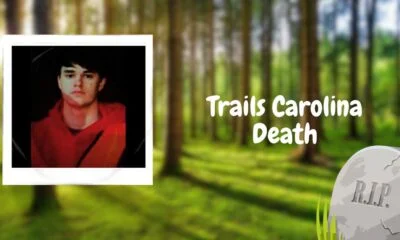Trails Carolina Tragedy: A Call for Safeguarding Wilderness Therapy

Trails Carolina, nestled in the picturesque landscapes of North Carolina, is renowned for its therapeutic wilderness programs designed to help troubled adolescents find healing and transformation. However, the idyllic setting of Trails Carolina recently became the backdrop for a harrowing incident that shook the community and raised questions about the safety protocols in wilderness therapy. This tragedy unfolded as a stark reminder of the risks associated with such programs, shedding light on the delicate balance between adventure and security.
The Incident:
In the heart of the Blue Ridge Mountains, Trails Carolina provides a unique approach to therapy by immersing participants in the wilderness. The program combines outdoor activities, group therapy, and academic support to foster personal growth and resilience. Unfortunately, this promising approach took a dark turn when news broke about a death that occurred within the Trails Carolina program.
Details surrounding the incident are still emerging, but initial reports suggest that the tragedy unfolded during a routine outdoor activity. A participant, whose identity has not been disclosed, succumbed to unforeseen circumstances, casting a somber shadow over the usually uplifting atmosphere of Trails Carolina. The community, both within the program and beyond, was left grappling with shock and grief.
Reactions and Community Response:
The Trails Carolina community, composed of staff, participants, and their families, found themselves in an unexpected and devastating situation. The incident prompted an immediate response from the program’s administration, with an emphasis on transparency and support for those affected. Crisis counselors were brought in to assist participants and staff in processing the trauma, and families were kept informed as the investigation unfolded.
The tragedy also sparked discussions within the broader community about the safety measures in place during wilderness therapy programs. Advocacy groups and concerned parents began questioning the industry’s standards, calling for a reevaluation of safety protocols and increased oversight to prevent similar incidents from occurring in the future.
Safety Protocols in Wilderness Therapy:
Wilderness therapy programs like Trails Carolina often aim to create a balance between adventure and safety, providing an environment where participants can confront challenges while being guided by trained professionals. However, tragedies such as the recent death highlight the need for a comprehensive examination of safety measures within these programs.
Key considerations include the qualifications of staff members, emergency response procedures, and the adequacy of participant screening processes. Advocates argue that stringent guidelines must be in place to ensure that participants are not exposed to undue risks, and that staff members are equipped to handle emergencies in remote wilderness settings.
Industry Oversight and Regulation:
The wilderness therapy industry operates within a relatively niche and specialized space, making it crucial to establish standardized regulations and oversight to safeguard participants. Calls for an independent regulatory body to monitor and evaluate these programs have gained momentum in the wake of the Trails Carolina tragedy.
This proposed oversight would involve regular inspections, certification processes, and the establishment of industry-wide safety standards. Critics argue that self-regulation within the industry may not be sufficient, given the potential for conflicts of interest and a lack of accountability.
The Legal Landscape:
As investigations into the Trails Carolina incident continue, legal ramifications are likely to be a focal point. Questions surrounding liability, negligence, and duty of care may come into play, with potential legal actions being taken against the program if negligence is found.
Legal experts assert that these cases can be complex, often involving a careful examination of contractual agreements, waivers, and the adherence to industry standards. The outcome of legal proceedings could have far-reaching implications for wilderness therapy programs nationwide, influencing how they operate and the level of responsibility they bear.
The Human Element:
Beyond the legal and regulatory aspects, the Trails Carolina tragedy underscores the profound human impact of such incidents. Families who entrust their struggling adolescents to these programs do so with the hope of fostering positive change. The sudden loss of a participant not only shatters this hope but also raises fundamental questions about the ethical implications of subjecting vulnerable individuals to potentially hazardous environments.
Critics argue that the focus should extend beyond regulatory frameworks to include a compassionate and ethical approach to wilderness therapy. This involves acknowledging the inherent vulnerability of participants and prioritizing their well-being above all else.
Moving Forward:
The Trails Carolina death serves as a poignant reminder that the pursuit of therapeutic transformation in the wilderness comes with inherent risks. As the industry grapples with the aftermath of this tragedy, stakeholders must collectively address the need for robust safety measures, industry-wide standards, and responsible practices that prioritize the well-being of participants.
In the face of such adversity, there is an opportunity for the wilderness therapy community to reflect, learn, and evolve. By embracing a proactive and transparent approach, the industry can work towards rebuilding trust and ensuring that tragedies like the one at Trails Carolina become rare exceptions rather than stark realities. Ultimately, the goal should be to create a space where participants can find healing and growth without compromising their safety.



